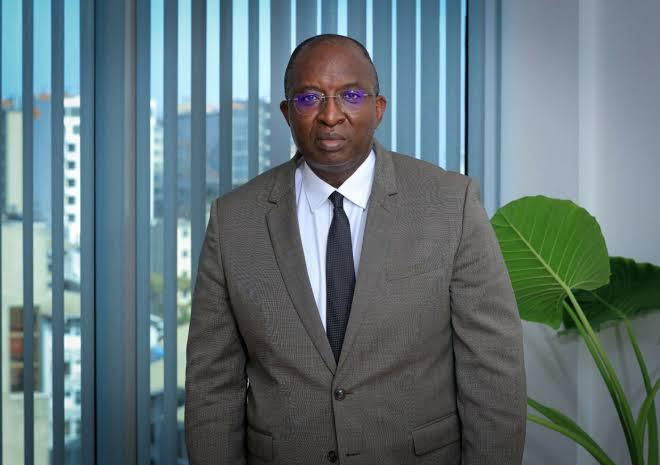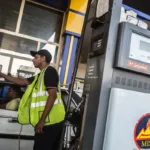IFC’s strategic investments propel Egypt’s economic growth in FY23, beyond – Dailynewsegypt


The International Finance Corporation (IFC), a member of the World Bank Group, has ramped up investments in Egypt with a focus on improving the country’s infrastructure, supporting manufacturing companies, and improving access to finance for small and medium enterprises (SMEs), fintech, and climate projects. Daily News Egypt interviewed Cheick Oumar Sylla, the Regional Director for IFC for North Africa and Horn of Africa, to discuss the advances in cooperation between the Egyptian government and the international institution.
What was IFC’s investment in Egypt for FY23?
IFC’s strategy in Egypt aligns with the country’s national strategy to increase private sector participation in the economy, localize industries, and expand local production. Since beginning its operations in Egypt, IFC has invested and mobilized $8bn worth of investment projects and has an advisory portfolio amounting to $26.8m which demonstrates our commitment to Egypt’s promising economic future. During FY23 alone, IFC invested and mobilized over $1.1bn in key sectors such as access to finance, fintech, climate finance, manufacturing, infrastructure (including transport, logistics, and renewable energy), healthcare, and gender inclusion.
What are IFC’s investment plans for Egypt in 2024?
Since the beginning of fiscal year 2024, IFC has committed investments with over $850m across different key sectors in Egypt, including, for example, a co-financing package with international development partners to develop the second container terminal at Egypt’s Damietta Port and a $25m loan to Kandil Steel, one of the largest steel companies in the Middle East and Africa, to support the company’s sustainable growth.
Moreover, this year, IFC expanded its partnership with Banque Misr with a $234m loan, marking IFC’s first gender-lens investment in a public sector bank in Egypt. This loan aims to increase access to finance for MSMEs in Egypt, particularly those owned by women.
Furthermore, IFC has a robust pipeline of investment projects covering diverse sectors including renewables, logistics, manufacturing, tourism, and financial markets for the remainder of 2024. We expect that we will be close to a $1bn investment in Egypt for the current fiscal year.
What is IFC’s outlook on the Egyptian economy?
Egypt has recently been implementing a reform programme to promote more dynamically inclusive growth for the economy, with the private sector playing an important role, especially amid current macroeconomic challenges. IFC is committed to supporting the development of a private sector in Egypt that contributes to a sustainable and resilient economy.
The country boasts numerous economic strengths, including a competitive and growing young population, a strategic geographic location, and abundant wind and solar power resources that could help fuel Egypt’s economic engine and propel it toward sustained growth. IFC puts climate investment at the forefront of its strategy in Egypt to help accelerate the country’s economic growth. IFC is keen to build on the success of Benban, which brought together key development partners to deliver Egypt’s largest solar park, as well as our financial package along with partners for the Abydos and Amunet solar and wind projects.
How does the IFC evaluate Egypt’s recent reform pace?
Egypt has achieved significant, positive steps in implementing its reforms programme—the State Ownership Policy (SOP) is an example of that—to increase private sector participation in the economy from 30 percent to 65 percent within three years.
These efforts, which the World Bank Group supports, including as demonstrated in our Country Partnership Framework (CPF) and Country Private Sector Diagnostic (CPSD) for Egypt, are central to supporting the country’s economic development. In addition, the Asset Monetization Programme underscores Egypt’s strategy to empower the private sector to spur sustainable growth and prosperity. With our wide-ranging sector expertise, know-how, institutional network, and established market reputation, IFC is committed to supporting the Assets Monetization Programme, which is working to harness private capital and know-how to manage state-owned assets.
What is the size of IFC’s investment portfolio in Egypt’s banking sector?
IFC is and remains committed to supporting Egypt’s banking sector— which accounts for 33% of our active portfolio in Egypt. By supporting the banking sector, we are in turn helping increase access to finance for micro, small, and medium-sized enterprises (MSMEs), which employ the vast majority of Egypt’s private sector workforce.
IFC’s recent engagements in the banking sector include the $100m COVID facility in 2020 to the Commercial International Bank (CIB), Egypt’s largest private sector bank, to help sustain jobs and continued economic activity in Egypt during the pandemic. IFC also financed CIB’s $100m green bond in 2021, the country’s first private sector green bond, to help address investors’ needs for quality long-term debt instruments amid a growing appetite for climate-smart and green projects.
IFC has recently ramped up its support to Egypt’s banking sector with some notable investments in commercial banks during FY23 and FY24 with commitments that amount to more than $580m. This includes investments in the CIB, ADIBE, Banque Misr, and Al Baraka. Our investments in the sector have targeted supporting growing banks’ MSME portfolio with a focus on women-owned businesses as well as scale banks’ climate finance activities.
Finally, the IFC looks forward to continuing its support of the banking sector in Egypt and has a strong pipeline of investment projects for the sector lined up for the future.
Can we anticipate IFC-backed debt issuances in Egypt this year?
This year, we look forward to supporting companies in Egypt with local currency revenue streams, helping them build the foundations of a thriving private sector.
IFC is proud to have received the government’s consent to issue the EGP bond in global markets in FY2023. We look forward to supporting the Government of Egypt during the current macroeconomic challenges through local currency bonds, which will allow companies to focus on their core businesses rather than worry about exchange rate volatility.
Simultaneously, green bonds remain a cornerstone of IFC’s priority financial tools in Egypt to help unlock finance for climate-smart projects, reduce greenhouse gas emissions, and support the country’s transition to a greener economy.
How is IFC contributing to climate mitigation and adaptation in Egypt?
IFC is dedicated to fostering a low-carbon and resilient economy in Egypt by channeling private investment into critical sectors. These sectors, which are responsible for the majority of global greenhouse gas emissions and face adaptation challenges, include energy, agriculture, food, water, land, urban development, transport, and manufacturing. IFC’s strategy also involves greening the financial systems that underpin these sectors.
Since 2016, IFC has invested and mobilized over $2bn in climate-related projects in Egypt.
Some of IFC’s key climate projects in Egypt over the last few years include:
Energy transition: In November 2022, IFC, AMEA Power, Sumitomo Corp together with JBIC, JICA, FMO, and private sector commercial banks insured by NEXI provided a $1bn finance package (including debt and equity) to build and operate twin solar and wind power plants (Abydos & Amunet) that will together provide a combined capacity of more than 1 GW, delivering clean energy to Egyptians at the lowest price of electricity in Africa.
Climate finance: In addition to the aforementioned investment project with the Commercial International Bank (CIB), IFC partnered with Banque du Caire to develop a climate finance strategy that will help protect the bank from climate risks, increase its investments in green activities, and support the decarbonization of Egypt’s economy.
Decarbonization: IFC partnered with Egypt’s Kandil Steel, one of the largest steel companies in the Middle East and Africa, through a $25m loan to support the company’s operational and financial resilience, job creation, and its strategy to cut carbon emissions. We also partnered with the Government of Egypt to boost the supply of safe drinking water in Egypt through desalination plants to be delivered through public-private partnerships.
Green Buildings: With support from our longstanding development partners at the Swiss Secretariat for Economic Affairs (SECO), IFC partnered with the Housing and Building Research Center (HBRC), the green building arm of the Ministry of Housing, Utilities, and Urban Communities, to enhance the ecosystem of green buildings in Egypt, through policy reform initiatives, capacity building of public officials, raising awareness among public and private sectors and of course providing green finance. One of the landmarks that got recently certified is the Grand Egyptian Museum, which received IFC’s EDGE Certification, a global green building certification system focused on making buildings more resource-efficient.






